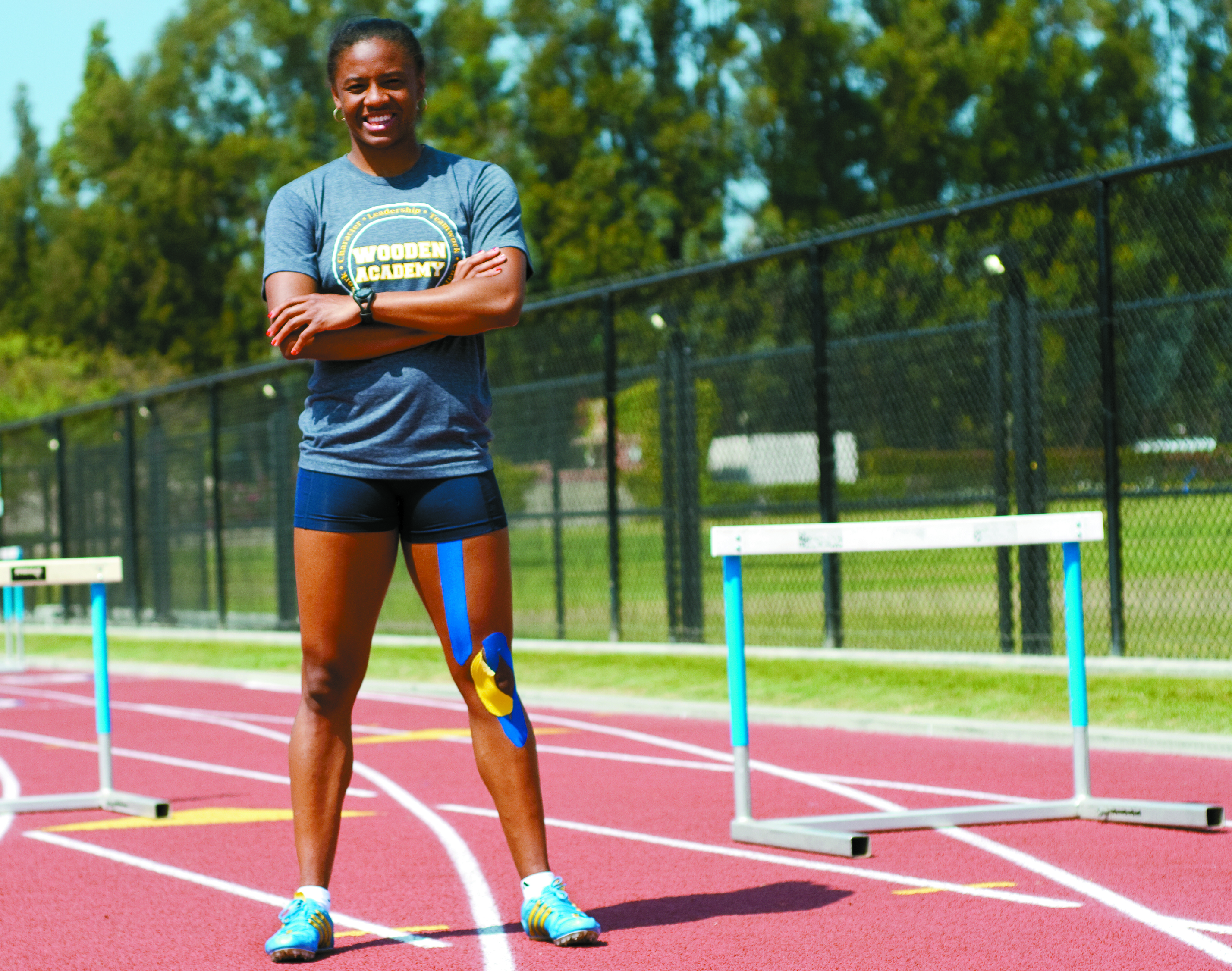Uttering competitive ballet and women’s track and field in the same sentence might seem laughable, but the two may have more in common than previously thought.
UCLA women’s track and field co-captain, Pac-10 champion and battle-tested competitor Lindsay Rowe grew up in a tutu.
Her journey officially began when she retired from competitive ballet after her freshman year of high school.
Now, Rowe, a senior and perpetual shoo-in for the NCAA Championships, reflects back on her journey from the ballet bar to becoming a blazing track star.
“In ballet, you are always competing for the lead role, trying to be in the frontline,” she said. “Track is similar; you are competing to be the best, for glory.”
The ultimate difference between the two, and the reason Rowe stuck with track, is that, on the track, there isn’t anyone who can subjectively decide that you just aren’t fast.
“Ballet just wasn’t fun for me anymore. Track drew me in because I liked the team aspect and I liked competing. It’s a little different than dance, because dance can be very cutthroat,” Rowe said.
“Your teacher may think you have really good feet, or not. But in track, if you’re fast, you’re fast.”
An assiduously driven athlete, Rowe wanted to be in control of a fate she could meld relative to her own tenacity ““ hence the leap from ballet to track.
Rowe is currently ranked No. 23 in the NCAA in the 100-meter hurdles, with a time of 13.34 seconds.
Last season, she won the Pac-10 title in the 100m hurdles with a time of 13.24 seconds, placing in UCLA’s illustrious top 10 list. Rowe always suspected she was fast; she just didn’t know how fast.
“I always thought I was fast when I was younger, but I never really tested it; I just danced,” Rowe said.
Natural aptitude goes a long way, a very long way indeed, but nothing can be substituted for good, old-fashioned hard work.
“Lindsay’s competitiveness has grown throughout her years here at UCLA,” track and field coach Jeanette Bolden said. “She has grown from a shy, young lady coming from New York, not really knowing anyone here, into a young woman.”
After finally making the switch, Rowe found her niche on the turf.
“I can’t change the way I was born, or my body type,” she said. “With track, it doesn’t matter your body type, how tall or short you are; it’s a test of your true ability. If you run this time, nothing else matters, and no one can take that away from you.”
At this point in Rowe’s career, there is no question that she is a great competitor.
In addition to clinching the Pac-10 crown last season, she has placed in the top 25 at the NCAA Outdoor Championships in each of her past three seasons.
Despite the accolades and stardom, it is Rowe’s character that makes her a good leader, according to teammate and fellow senior Ashlea McLaughlin.
“Lindsay’s positivity has definitely grown since she first got to UCLA,” said McLaughlin, who often bunks with Rowe during away meets.
“She doesn’t really complain about a tough workout or meet. That’s something that’s really important for a leader.”
McLaughlin certainly has nice things to say about Rowe at her core, but what about Rowe the roommate?
“Lindsay is a great roommate,” McLaughlin said. “She’s very neat and tidy, always cleans up the room. I usually watch TV, and she Skypes.”
Joking aside, Rowe didn’t compete last week and will also sit out Friday and Saturday’s meets at the Triton Invitational in order to rest a knee with tendinitis.
After all, blazing over hurdles at high speeds is rather commensurable to performing competitive ballet, according to Bolden.
“Being in dance has helped her to be more in tune with her body,” Rowe’s coach said. “She has amazing kinesthetic awareness about her body. She knows what her strengths are, she knows what her weaknesses are and she works really hard to make her weaknesses her strengths.”
